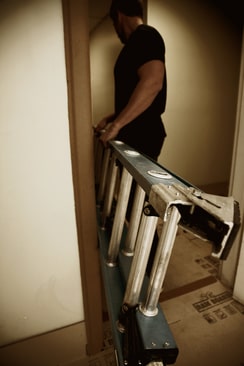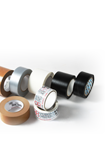 Loading... Please wait...
Loading... Please wait...Safety Tips for DIY Construction Projects
Posted by Alan on 3rd May 2019
With so many Do-It-Yourself (DIY) videos available online, many homeowners are now planning and completing small-sized home projects on their own in the hope of saving some money. While this can be exciting, it also calls for risky practices. Every year, thousands of people end up in the emergency room due to injuries from DIY home improvement projects. Whether you are a first-timer or a seasoned DIYer, it's important to take a "safety first" mindset in any construction project.

Here a few safety tips to get you started:
- Wear Protective Gear
You probably know how to be careful around obviously dangerous stuff like electricity, lawnmowers, and so on. But it's the small things like a dangling necklace or walking barefoot that often cause most DIY accidents. Dressing for safety is a must to minimise accidents. Some of the common protective gears include safety glasses, gloves, ear plugs, a hard hat, safety mask, etc. Be sure to keep a fully stocked first-aid kit within reach in case of an emergency.
- Beware Of Your Surroundings
It's also important to take others' safety into consideration. Know where your other workmates are at all times to prevent hazards. Keep children and pets away from your work area and store tools away from their reach. In addition, try keeping your work area tidy and well-lit to avoid creating hazards.
- Act within Your Capabilities
Some DIY tasks require the touch of an expert. For instance, those involving structural changes, gas fitting, electrical work, plumbing, roof repairs, and even those that require specialised tools. If done incorrectly, these tasks can incur huge amounts of fines. They could also lead to more serious damage that could be costly to fix and even risk your life. Unless, you have the necessary knowledge, its best to hire a qualified professional to carry out such tasks safely.
- Protect the Construction Site
With everything that goes on on-site, surfaces and furnishings can easily get damaged due to paint spills, scratches, mould growth, and so on. You need temporary protection materials to help prevent unnecessary damage or accidents and avoid delays. For starters, door frame protection can help protect doors from dirt, paint overspray, and dents. Other areas that require temporary protection include floors, bathtub, tiles, windows, worktop, etc. You can find quality surface and door frame protection products from Trio Plus. We offer a wide range of standard and heavy-duty surface protection products that are pocket-friendly, versatile, waterproof, resistant to chemicals, impact-resistant, and non-toxic.


